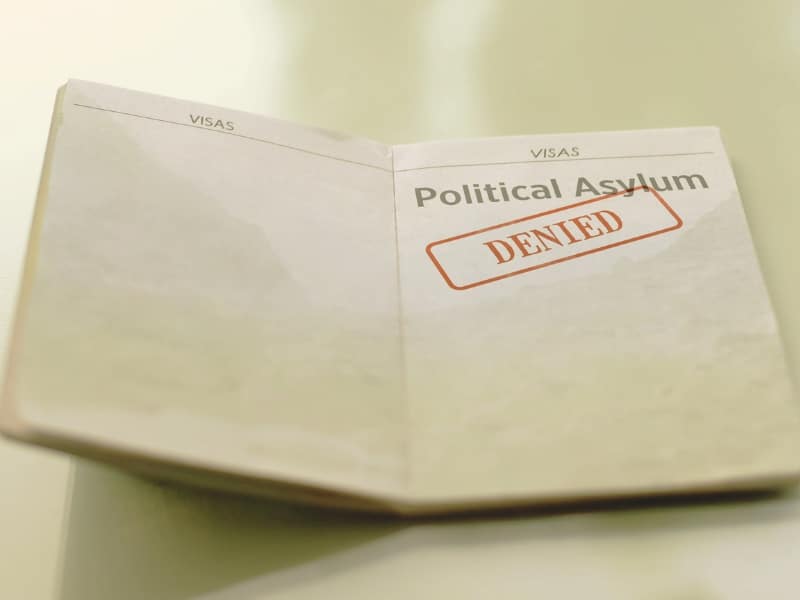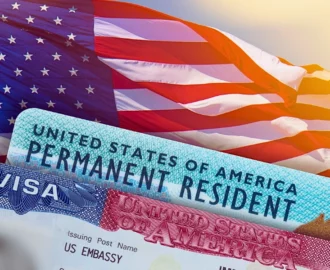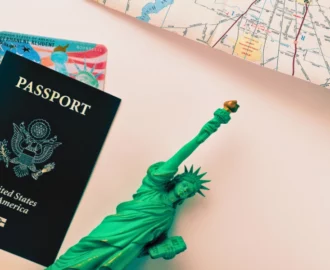Knowing what happens if asylum is denied may be the key to you remaining in the U.S., and gaining legal immigration status. If the government denies your application for asylum, removal proceedings will likely start, but you may be able to appeal the decision and continue seeking asylum. Taking the right steps after a denial can help increase your chances of successfully applying for asylum.

What Is an Asylum Request?
If you are worried about facing harm or persecution upon returning to your home country, you may be able to request asylum. If the government approves this request, you may be able to remain in the U.S. as an asylee.
There are different types of persecution and harm that refugees may face if they return to their country of origin. For example, some may experience persecution because of their religion, race, political affiliation, membership in a particular group, or nationality.
While many types of refugees can seek asylum if they have a valid reason to flee their country, the government may choose to deny a request for asylum under certain circumstances.
What Happens If Your Asylum Request Is Denied?
When applying for asylum, the U.S. government will determine whether your fears of returning to your previous country are valid. However, it can be challenging to prove that your fears are truthful, and you may not qualify for asylum for other reasons.
Following an interview with a U.S. Citizenship and Immigration Services (USCIS) officer that results in a denial, you will need to present your case in front of a judge in immigration court. In immigration court, the judge assigned to your case will look into it and determine whether you qualify for asylum. If this results in another denial, you can begin the appeals process.
Knowing the specific requirements for seeking asylum in the U.S. will help guide you through the process. As a result, you may be able to avoid a denial from the USCIS officer or judge.
What to Do if Your Asylum Is Denied
After reviewing your case, the immigration judge may opt to deny your request for asylum, at which point you can appeal your denied asylum by going through the administrative appeals process.
Appealing to the Board of Immigration Appeals
You will need to start by submitting an appeal to the Board of Immigration Appeals (BIA). This process will involve a review of the record along with the documentation you provided during that time. Based on this review, the BIA will confirm whether the judge made a sound or erroneous decision.
Keep in mind that it is often difficult to prove that a judge’s decision was made in error, especially considering you are unable to submit new evidence during the BIA review of your case if it was already available to you earlier. Also, this process is lengthy and could take a year or longer before the BIA either approves or denies your appeal.
Taking Your Case to the Federal Court of Appeals
In some cases, you may be able to continue the appeals process if the BIA denies your request for asylum. This would entail going through the federal court of appeals.
While some individuals may be able to successfully take their case to the Supreme Court if the court of appeals dismisses the case, this court is highly selective with these and other cases.
How Many Times Can You Appeal an Asylum Denial?
Ultimately, you will be able to appeal your denial twice after seeing a judge in immigration court. You’ll be able to first go through the BIA and then take your case to the federal court of appeals if necessary.
If you want to increase your chances of successfully appealing denied asylum, you may want to consider consulting with an immigration lawyer. An attorney may be able to help you early on in the appeals process when requesting asylum.
Ideally, you may want to work with an attorney before seeing an immigration judge. The lawyer may be able to help draft and prepare all documentation before presenting it in front of the judge. This will ensure you submit all available evidence to support your case before you’re no longer able to do so under BIA review.
Even if the immigration judge and BIA both deny your appeal, you may still have a chance to succeed with the federal court of appeals. Your attorney would indicate whether you have a case that the court of appeals should review and prepare accordingly.
Working with an attorney may also help make the process more efficient. You may need to wait for a year or longer before you successfully appeal denied asylum.
What to Do When Considering an Appeal
If asylum is denied, and you must present your case before a judge, speak with a lawyer to discuss your options and determine if you qualify for asylum.
Knowing what to ask an immigration lawyer in a consultation can help you determine whether a lawyer is right for you, understand what happens if asylum is denied, and review your options to decide the best course of action. For instance, you might want to learn about how the attorney will approach your case and the specific tasks they’ll perform to help with appeals.
With sufficient preparation before beginning the appeals process, you may still be able to stay in the U.S. and avoid removal.




